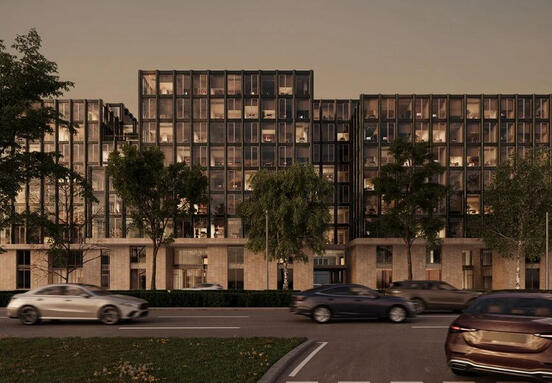SINCE THE ABOLITION of the real estate transfer tax next year, as things stand now, there is nothing. This is information that was confirmed for Index by several interlocutors from government circles.
"It is true that the government's program includes the abolition of real estate sales tax, but this is an announcement that applies to the entire mandate. Nowhere did anyone write or say exactly when this will happen, so no one talked about January 1 next We will go with this measure when the conditions are created, "a well-informed source from government circles, who wished to remain anonymous, told Index.
The emphasis in tax reform will be on reducing income taxes
We received a similar message from another interlocutor from the government, who told us that we should not expect the abolition of the real estate transfer tax next year. The corona crisis, after all, has put a lot of strain on both state and local finances, so neither the central state nor the local self-government, whose income is real estate sales tax, are ready for such an intervention at the moment. Instead of abolishing that tax, it seems that the government will focus on further reduction of income tax, ie cutting income tax rates from 36 to 30 and from 24 to 20 percent, in the upcoming new round of tax reform. Our interlocutor from the government also warns about that.
"Instead of abolishing the real estate transfer tax, there will be other tax changes and reliefs, as we announced," our interlocutor said.
Our sources reject claims that they gave up on abolishing the real estate tax next year under pressure from mayors and mayors, whose budgets, combined with changes in the income tax system, which is also local treasury revenue, would be left without too much. The president of the Association of Towns, Željko Turk, the mayor of Zaprešić, also claims that the mayors and municipal mayors did not put pressure on the government of Andrej Plenković to give up the announced abolition of real estate transfer tax until further notice.
Local leaders say they have not exerted pressure, but the statement makes it clear that abolishing the tax does not suit them.
"We had a meeting with government officials in July and then the abolition of real estate tax was mentioned as one of the reforms, but no one mentioned any deadlines, especially dates. So the claims that we put pressure are not standing," he said. for Index Turk.
When asked how important real estate tax revenues are in his city budget, Turk said that the importance is not too great because the city budget is filled primarily from other revenues, primarily from income taxes. However, he admits that the real estate transfer tax is also an important link in the construction of city finances.
"Real estate sales tax is not one of the key revenues, but it is certainly important to us," said Turk.
But whatever the mayors say, it is clear that the abolition of the real estate transfer tax does not suit them. This conclusion is indicated by a statement issued by the Association of Cities on July 24, after meetings with Deputy Prime Minister and Minister of Finance Zdravko Maric, which warns that due to the announced changes in the tax system, which included the abolition of real estate tax , Local government revenues to be further reduced, at a time when they are expected to step up efforts to attract money from EU funds, for which they must secure their own share.
"The Association of Cities estimates that due to these changes, local government revenues from income tax will decrease by approximately two billion kuna and an additional 1.1 billion kuna due to real estate sales tax, or about 11 percent of business revenues," the Association of Cities said in a statement. .
Cities and municipalities annually collect over a billion kuna from real estate sales tax
Thus, cities and municipalities annually collect a total of around 1.1 billion kuna from real estate sales tax. The City of Zagreb collects the most, over 300 million kuna, from that tax. It is therefore not surprising that changes in the tax system, as expected and announced, would hit cities and municipalities the hardest for the new round of tax reform, since local units would be left without a total of as much as 3.1 billion kuna. This is already reason enough for local government to oppose new changes in the tax system. All the more so as the previous changes in the tax system have largely been to their detriment.
However, the losers are citizens who will continue to pay real estate sales tax, at a rate of three percent, as it has been in recent years, after it was reduced from the previous five percent. This means that the buyer of a property worth 100,000 euros will have to pay a tax of 3,000 euros to the local self-government next year as well.
There are many exemptions from paying real estate transfer tax
However, Jasna Vuk from RRiF College of Financial Management warns that there are many exceptions to real estate sales tax. This tax, for example, is not paid by companies when real estate is entered into commercial capital.
companies, and it is not paid by local self-government units and the state, nor by companies and institutions for which the state or local self-government is the sole founder. Associations registered for humanitarian activities, as well as the Red Cross, are also exempt from paying this tax. It is also not paid by VAT payers, like real estate companies when they buy real estate that is subject to VAT.
"The system is set up in such a way that real estate sales tax and VAT are not paid, but only one of those taxes. Considering that the real estate sales tax rate is three percent, and Croatia does not have such a developed real estate market as Western countries, then it is not a significant income of local budgets ", explains Vuk for Index.
Local authorities have not reformed, so they do not want new changes in the tax system
However, Željko Lovrinčević from the Zagreb Institute of Economics estimates that giving up the abolition of real estate sales tax next year may best reflect the situation in Croatia. He reminds that the local leaders opposed the introduction of the real estate (property) tax, which was announced by the government of Zoran Milanović, and the governments that followed, even though it would be the income of the local budgets. Local authorities have not implemented any reforms in the meantime, and now that the corona crisis has knocked on their door, they want to preserve the status quo, including the real estate transfer tax. Especially since the local elections are approaching, before which it would be unpopular to reopen the property tax issue.
"Changes in the tax system would jeopardize the financial stability of local budgets because local leaders have not implemented any reforms and thus reduced their expenditures. That is why they are now putting pressure against new changes in the tax system. local government deficit ", Lovrinčević warns for Index.
There is little room for new tax relief until the state reduces spending
He adds that similar challenges await the central government, which no longer has room for tax relief until it reduces spending and thus cuts the expenditure side of the budget. But cutting the expenditure side, our interlocutor notes, means touching the wasp's nest of privileged pensions, territorial reorganization, parafiscal levies and other taboo topics.
"A fiscal space needs to be created for tax relief, which means reducing the expenditure side of the budget. Otherwise, you are questioning the stability of public finances, even in the conditions of the crisis," Lovrinčević concluded.
He highlights parafiscal levies and the health and pension systems as three critical areas where reforms are needed.
Source: Index.hr







